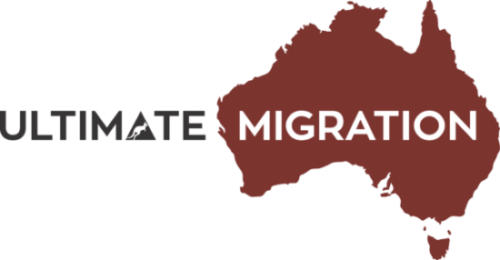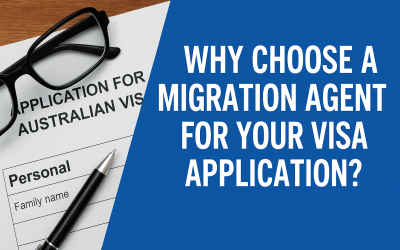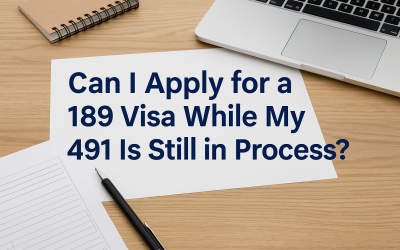Community Worker (ANZSCO 411711) Skill Assessment Criteria
The Australian Community Workers Association (ACWA) is designated as the skills assessment authority for community services professionals who intend to migrate to Australia.
Role of ACWA in Skills Assessment
ACWA’s responsibilities in the skills assessment process include:
- Verifying Qualifications– ACWA assesses the educational background of applicants to ensure their qualifications are relevant and meet the required Australian Qualifications Framework (AQF) level for their occupation.
- Evaluating Professional Experience– Applicants must demonstrate their practical experience in the field of community services, showing that they have the necessary skills and knowledge for their nominated occupation.
- Ensuring English Proficiency– ACWA evaluates the English language proficiency of applicants to ensure they can effectively communicate and perform in their professional roles within Australia.
- Upholding Professional Standards– The assessment ensures that applicants adhere to the professional standards and ethical practices expected in the Australian community services sector.
Qualification Requirement
Qualifications can be one of the following:
- An ACWA accredited qualification: ACWA accredited diploma or higher course.
- A recognised relevant qualification: A professionally accredited course recognised by ACWA as being equivalent to an ACWA accredited AQF level 7 degree or higher.
A recognised relevant qualification meets all the following:- is a bachelor’s degree or higher (equivalent to AQF level 7)
- has a community and human services focus.
- is professionally accredited by the source country’s professional body which has equivalent accreditation standards to ACWA. Professional accreditation is a process by which a course is validated by a professional body similar to ACWA.
- A relevant diploma or higher qualification: A diploma or higher qualification related to community services.
A relevant qualification is one which adequately prepares graduates to perform community work in Australia. It has a focus on providing community and human services and will typically cover:
- sociology; social, political, economic structures and function
- social policy, human development and function including psychological, physical, and social aspects.
- general and specialised welfare services and systems
- work with individuals, families, groups, and communities.
- communication, basic counselling, and interpersonal skills
- additional subjects which could include child development, social justice, child protection, mental health, case management, group theory, drug and alcohol issues, crisis intervention, psychology, youth work, working with children and families, community development, juvenile justice, family violence.
Proficiency in English
Applicants must demonstrate English proficiency through one of the following:
- English Language Tests– IELTS (7.0 in all bands), PTE Academic (65 in each band), Advanced (CAE) (185 in each band), or TOEFL IBT PTE (specific scores in listening, reading, writing, and speaking).
- Education in English– Study conducted in an English-speaking country.
- Work Experience– Two years of relevant industry experience in an English-speaking country or a suitable, recently expired skills assessment.
Employment and Currency
- Recent Employment Required– Must have been employed within the industry at an appropriate skill level in the last 4 years. It is paid work, post-qualification, and must be at the skill level appropriate to the qualification.
- Experience Considerations–
- ACWA accredited or recognised qualification holders are deemed to have sufficient industry experience.
- Others need at least 1 year of relevant experience in the last 4 years.
- Currency of Skills and Knowledge– Applicants must also demonstrate their knowledge and skills are up to date in one of the following ways:
- holding a qualification that is less than 4 years old.
- a minimum of least 3 months full time (or part-time equivalent) employment in a relevant current role at the required skill level.
- at least 6 months relevant employment at the required skill level within the last 18 months.
ACWA Accredited Courses
- Advantage of Accredited Courses– These courses meet ACWA’s expected learning outcomes and include work placements to fulfill skills assessment criteria and deemed to have sufficient industry experience.
Visa Pathways for Community Worker
- Eligibility for Various Visas– The occupation of Community Worker (ANZSCO 411711) is eligible for several visa pathways, including 190, 491 (State), 407 (Training), 494 (Regional Sponsored), and 482 (TSS Short Term), among others.
Role and Responsibilities
Community workers offer vital support and guidance to individuals and groups, aiding them in navigating life’s challenges. Their work involves:
- Assessment of Needs– Understanding clients’ situations to plan appropriate educational, training, and support programs.
- Client Interviews– Engaging with clients to identify the depth of their difficulties.
- Progress Monitoring– Keeping track of client advancements and intervening as necessary.
- Referrals– Connecting clients with other agencies for further assistance.
- Community Assessment– Evaluating the needs and resources available for health, welfare, housing, employment, and more.
- Liaison and Promotion-Working with various groups and agencies to address community issues and enhance service awareness.
- Family Support– Assisting families, children, and disabled persons with education and care in various settings.
- Supervision– Overseeing individuals on probation or parole.
- Youth Assistance– Helping young individuals overcome social, emotional, and financial hurdles.
- Resource Mobilization– Preparing proposals for funding and reporting to governmental and other entities.
Skill Level and Qualifications
In both Australia and New Zealand, the profession of community worker is recognized at a significant skill level, necessitating formal education and, in some cases, relevant experience.
Australia
- ANZSCO Skill Level 2: This includes an Australian Qualifications Framework (AQF) associate degree, Advanced Diploma, or Diploma. These qualifications ensure that community workers are well-equipped with the knowledge and skills to perform their duties effectively.
New Zealand
- Skill Level 2: Comparable to New Zealand Qualifications Framework (NZQF) Diploma level, signifying a substantial level of expertise and competency in community welfare.
Experience as a Qualification
- Relevant Experience: At least three years of relevant experience can sometimes substitute for formal qualifications. This acknowledges the value of practical, on-the-ground experience in dealing with community welfare issues.
- Additional Training: In some instances, relevant experience and/or on-the-job training may be required in addition to formal qualifications, highlighting the importance of continuous learning and adaptation in the field.
This outline underscores the importance of accredited qualifications, English proficiency, and recent, relevant industry experience for those looking to pursue a career as a community worker in Australia.
Additionally, understanding the specific visa pathways and ensuring one’s qualifications and experience meet the Australian Community Workers Association’s standards are crucial steps in the process.
It’s crucial to ensure that the educational program you choose is accredited by the Australian Community Worker Association (ACWA).
Not every course related to community work holds this accreditation, making it essential to select your study path carefully to obtain valid credentials recognized within the industry.
At Ultimate Migration, we are committed to guiding you towards the most suitable accredited course tailored to your career aspirations in community work.
Our Education Team offers expert advice at no extra cost, and we also provide complimentary student visa application services for those who enrol in a course through us.




